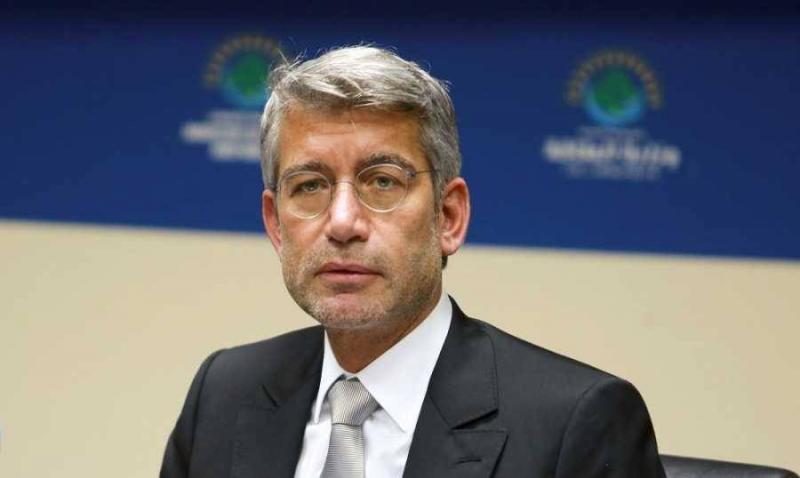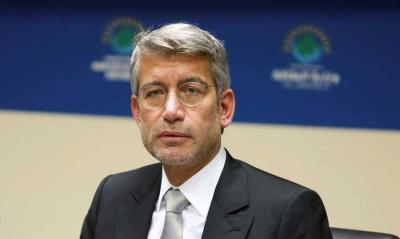The General Directorate of Oil - Ministry of Energy and Water has launched three tenders for the purchase of Fuel Oil (A) and (B), and Gas Oil, necessary for operating the production plants at Electricité du Liban. According to the statement issued by the ministry, the launch of the tender follows consultations carried out by Energy Minister Walid Fayyad with Prime Minister Najib Mikati, Finance Minister Youssef Khalil, and Central Bank Governor Riad Salameh, which resulted in securing financing. The statement also indicated that the quantities to be contracted will be sufficient to increase the electricity supply to between 8 and 10 hours, noting that the bids will be opened in November, with deliveries scheduled between December 1 and 10.
The statement shows considerable caution regarding the financing issue, linking it to consultations among four parties that led to this outcome. However, these were not true quadripartite consultations but rather bilateral discussions led by Prime Minister Mikati with the Energy Minister on one side and both the Finance Minister and the Central Bank Governor on the other. Mikati informed Fayyad that the financing has been secured without providing many details and insisted on the urgency of launching the tenders for purchasing the necessary fuel and diesel to increase electricity production, despite Governor Salameh not granting Fayyad approval for opening credits to cover six months of supply operations, which would require around $600 million. Nonetheless, Mikati is in a hurry, especially since the end of President Michel Aoun's term provides him with an opportunity to claim this as an achievement.
However, the question of how serious the financing assurance is remains vital. According to Fayyad's statement to "Al-Akhbar," the funding issue is linked to three options:
- The first option is that the Central Bank opens the credits to fully cover the importation of tankers, meaning it will pay from its liquidity in foreign currency for these credits when due, in exchange for the Lebanese government paying in Lebanese pounds at the Sayrafa rate. This way, the Central Bank acts as an intermediary for money transfers and guarantees government payment to external suppliers.
- The second option is that foreign banks, which Lebanon previously worked with, open credits as they did before, confident that the Lebanese government will pay the credits' value upon maturity with interest rates reaching up to 2%.
- The third option is that the participating companies in the tender offer credit facilities in exchange for guarantees that the funds will be paid upon maturity.
Once the funding issue is resolved, there is a second matter, as fuel and diesel tankers necessary for operating the plants are expected to arrive shortly before the implementation of the new electricity tariff, which will be 10 cents for the first 100 kilowatts consumed, and 27 cents for everything above that, with the tariff being flexible and subject to adjustment with fluctuations in oil product prices. Increasing supply hours will pave the way for revenue collection based on the new tariff. Previously, Lebanon was producing no more than 200 megawatts daily, distributed at an average of one and a half hours each day, while households and businesses relied on private generators with rates reaching 45 cents. By all measures, the new tariff will be approximately 40% cheaper at a minimum. If electricity is secured for around 10 hours, the reliance on generators will decrease in light of the overall distributed supply hours.
In summary, if financing is secured, and the increase in supply hours coincides with the implementation of the new tariff, Minister of Energy Walid Fayyad's emergency plan would be fully executed. However, the problem remains that it is a temporary plan that only addresses electricity provision for a few months. The fundamental challenge will still lie in securing foreign currency funding to purchase the required fuel oil for operating the plants. Securing $100 million monthly means that there is a need for an amount of $1.2 billion annually, which is a significant sum compared to the remaining liquidity in foreign currency at the Central Bank. Despite this amount potentially covering the importation of diesel that would have been necessary for running neighborhood generators at values exceeding a billion dollars, according to some estimates, the Central Bank will not agree to exchange the dollars it holds in its portfolio for the flows managed to support the market in the hands of traders. It manages flows coming from abroad to cover internal demand, but if it decides to compete in the market for about a quarter of those flows, it will significantly affect the exchange rate pricing. For example, if it decides to purchase $1.2 billion over a year while $6.3 billion flows into Lebanon, it will deprive the market of a quarter of those inflows.
In any case, the plan proposed by Electricité du Liban to produce sufficient electricity to increase supply hours to between 8 and 10 hours is based on the need for comprehensive maintenance at the Zahrani plant, which will reduce production capacity. However, the Ministry of Energy and Electricité du Liban will also have to determine how to utilize the Iraqi fuel coming to Lebanon at the end of next month. It could be used to extend supply hours to more than 10 hours or to prolong the supply duration of 10 hours for several additional months.




